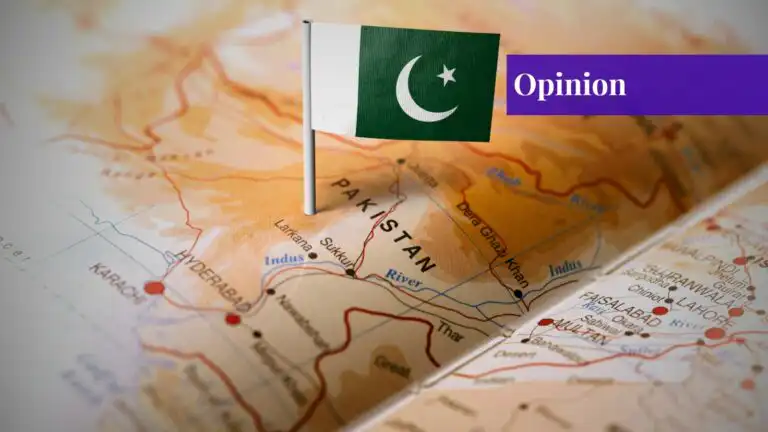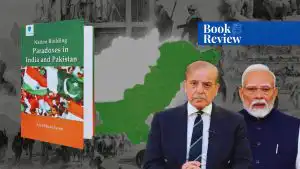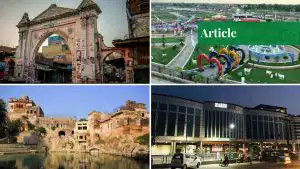After independence, Pakistan inherited four administrative provinces from colonial British India. The demand for more provinces based on governance and fair distribution of resources has been debated from time to time, with no clear execution taken on this matter. Pakistan has evolved from a centralized one-unit scheme before the 1970s to a more decentralized, empowered provincial system. However, the debate over the creation of new provinces remains a mainstream issue in Pakistan.
In 2012, the PPP-led government passed a resolution in the National Assembly for the creation of a Saraiki province (South Punjab) from Punjab, and other political parties have also agreed to create more provinces in Pakistan. The debate on the creation of new provinces resurfaced in Pakistan after Federal Planning Minister Ahsan Iqbal proposed making new provinces to empower local government systems. He said, “Turkey has over 80 provinces; why can’t Pakistan have 12 to 15?”
Debate Over Creating New Provinces
Indeed, Iqbal’s proposal carries weight. Balochistan, for example, is so large that if we combine Jordan, Syria, Lebanon, Palestine, and Israel, it would still be larger than them. Similarly, Punjab would be the 87th-largest country by area among 193 U.N. member states if it were a sovereign country. With such a large area, it becomes difficult for an economically poor country to deliver adequate governance to its people. The presence of poor governance gives rise to parallel governance models that are usually run by local elites with their own justice systems. It also erodes the credibility of the central government in the province and the writ of the state government.
However, critics argue that forming new provinces is not a viable solution, but devolution of power to the local level is the best possible way to address governance issues. The U.S. state of Texas, for example, has a massive area, yet it has a better governance system due to empowered local authorities. Similarly, current quarrels over the unfair distribution of resources among provinces might further spread. Therefore, more decentralization of power from the central government to local governments is required. Decentralization of power to local government is enshrined in Article 140-A of the 1973 Constitution of Pakistan. Thus, constitutionally, it is important to have a strong local governance system in Pakistan.
Devolution of Power to Local Governments?
Indeed, critics have weight in their argument, but the problem not only lies in governance; it is much larger than that. The debate over creating new provinces is not just about redrawing lines on the map but about addressing deep-rooted issues of identity and culture as well. Issues of not addressing regional grievances over identity are not new to Pakistan. As human beings, we have a habit of not learning from our past mistakes.
Despite being a separate province, East Pakistan (now Bangladesh) had always suffered from cultural and linguistic issues imposed by West Pakistan. Issues over national language, culture, and identity were the primary reasons that gave rise to the separatist movement in East Pakistan. Such local movements over cultural and identity issues are still prominent in the current federation of Pakistan. Local movements like Muttahida Qaumi Movement (MQM) have consistently advocated for a separate province to address identity and governance issues in Sindh. Furthermore, the Awami National Party (ANP) has pushed for renaming the colonial North-West Frontier Province (NWFP) to Khyber Pakhtunkhwa, which it achieved in 2010. Such demands can undermine the cohesion of a federation.
Therefore, devolution of power to local governments is not a clear solution; rather, creation of new provinces and devolution of power is the best possible way forward. Creating new provinces will also allow provincial legislatures to create laws to address local identity and cultural issues. Furthermore, a separate province for minority identities will check the popular debate on the center-periphery economic imbalance and unfair distribution of resources. Despite slow progress in empowering local governments, India has divided its provinces after independence to address such regional identity issues. Similarly, Pakistan must create more provinces to address identity issues in tandem with empowering the local governance system. Other notable examples include Canada, which has a good local governance model. However, French-speaking Quebec pushed for a sovereign country in 1980 over deep-rooted identity, culture, and language distinctions within Canada.
Conclusion
In conclusion, creating new provinces in Pakistan is more than a political debate; it is about identity and culture as well. While addressing separate administrative provinces, we must ask ourselves: Do Pakistan’s current provincial maps create harmony among different cultures, or do they create friction in the federation? Therefore, we must give significant consideration to creating new provinces with empowered local governments to strengthen the unity and federation of Pakistan.
If you want to submit your articles and/or research papers, please visit the Submissions page.
To stay updated with the latest jobs, CSS news, internships, scholarships, and current affairs articles, join our Community Forum!
The views and opinions expressed in this article/paper are the author’s own and do not necessarily reflect the editorial position of Paradigm Shift.
He is studying international relations at the University of Central Punjab,






